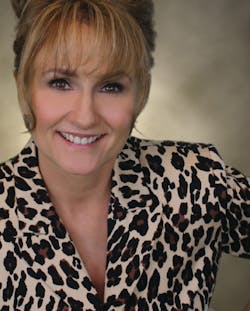Leadership Lessons: Know Your Crew, Part 5: How to Lead the "Expressives"
In August, I started a five-part series about knowing your crew and the four different social styles on your team, based on the Merrill/Reid Social Style Model. If you haven’t read the first four installments, be sure to start there so this column makes sense to you. You can find the archived articles at Firehouse.com; enter “Know Your Crew” in the search box. Last month, I shared with you the traits of the “Amiable” social style on your crew. This column covers the “Expressive.”
Expressives are the “social specialists” on your crew. They are “tellers” and are “relationship-oriented.” They are very impulsive people who love to socialize, tell jokes and have fun. As a result, they can often be your highest risk for hostile environment or harassment suits because while they mean well, they don’t always think before they act or talk.
What the Expressives like
Expressives like to try new and different things. They struggle with commitment and follow-through, especially on long and drawn-out tasks. Expressives have happy and charismatic spirits and can endure hardships and trials easier than the other social styles. Discomfort is just a new experience that they know will pass. They love to reminisce and enjoy belonging to social organizations. They are friendly, giving and easygoing.
Strengths of the Expressive include: Appealing personality, good sense of humor, volunteers for jobs, thinks up new activities, has energy and enthusiasm, charms others to work, turns disaster into humor. Some of the weaknesses of the Expressive include: Compulsive talker, restless energy, egotistical, blusters and complains, loud voice and laugh, angers easily, forgets obligations and appointments, easily distracted, doesn’t actively listen.
I want to share some tips with you for leading the Expressives. First of all, Expressives work best with freedom and flexibility. They like to invent new ways to do things and want the freedom to be creative. They need endorsement and encouragement. Expressives thrive on interaction with others and do not like to work alone. When put in team environments, Expressives bring vision to the team. They also inspire others and increase the energy level of the team. They are great with brainstorming and being creative.
Expressives have a hard time being led by dull individuals who like to maintain the status quo. They like to take risks and expect the people who lead them to do the same. Expressives thrive on change and are constantly looking for ways to do things differently. While they can juggle many tasks at once, they don’t always follow through. They often get bored or distracted easily and move on to new projects before completing current ones. As their leader, you will need to help keep them focused.
Expressives want to know that their contributions are appreciated. They value leaders who take an interest in their personal life and their own personal interests. They need leaders who provide inspiration. They also need broad structure, but not detailed methods. They like excitement, encouragement and personal support.
A great way to effectively lead Expressives is to know what they value and what annoys them. Expressives value excitement, adventure, innovation, vision, and creativity. They are annoyed by formality, excessive rules, routine, boredom, details, and ritual.
Expressives will be very charismatic team members if you know how to deal with them. They respect leaders who have a sense of humor and allow some spontaneity. If you want to gain a high level of productivity from Expressives, you need to let them have fun at their jobs.
Now you know where the saying “different strokes for different folks” came from. Each social style is unique in leadership needs and working with others. As a leader, if you can learn how to lead each style, you can create a more productive, cohesive, and efficient work environment. And in case you were wondering, I’m a Driver.
Now that you know how to identify an Analytical, Driver, Amiable and Expressive by their behavior, you can apply this information to your friends and family. Look at your spouse and children. You can now determine which social style they are and how to adapt to get along better with them. If you would like more comprehensive information and tools about social style, log on to: www.tracomcorp.com.
I hope this five part-part series has been beneficial to you in learning how to better know and understand your crew. May your 2013 be prosperous and successful as you navigate your leadership position.
KIMBERLY ALYN, Ph.D., is a best-selling author and an international fire service speaker and training instructor. She is the owner of Fire Presentations (FirePresentations.com), a company dedicated to keynote presentations and training workshops for the fire service. Dr. Alyn has conducted the largest known fire service study on the topic of leadership and organizational commitment. She works with fire departments across the country on firefighter and fire officer leadership development. She is the author of 12 books, including Leadership Lessons for Formal and Informal Fire Service Leaders. Dr. Alyn holds a bachelor’s degree in management, a master’s degree in organizational management and a doctorate in management with a specialty in leadership. Dr. Alyn can be reached at 800-821-8116 or email [email protected].
About the Author
Kimberly Alyn
Ph.D.
KIMBERLY ALYN, Ph.D., is a best-selling author and an international fire service speaker and training instructor. She is the owner of Fire Presentations (FirePresentations.com), a company dedicated to keynote presentations and training workshops for the fire service. Dr. Alyn has conducted the largest known fire service study on the topic of leadership and organizational commitment. She works with fire departments across the country on firefighter and fire officer leadership development. She is the author of 12 books, including Leadership Lessons for Formal and Informal Fire Service Leaders. Dr. Alyn holds a bachelor’s degree in management, a master’s degree in organizational management and a doctorate in management with a specialty in leadership. Dr. Alyn can be reached at 800-821-8116 or email [email protected].

